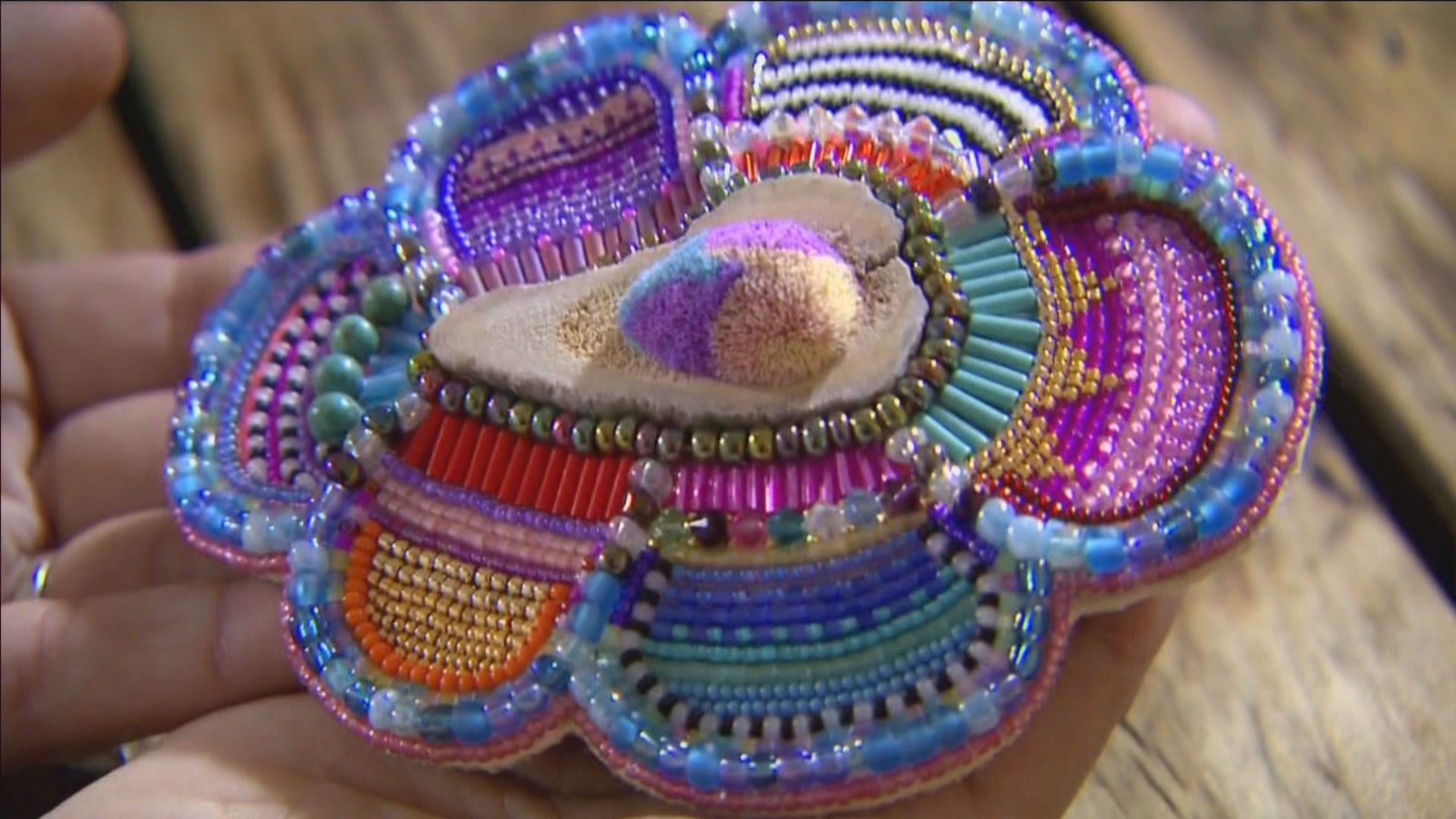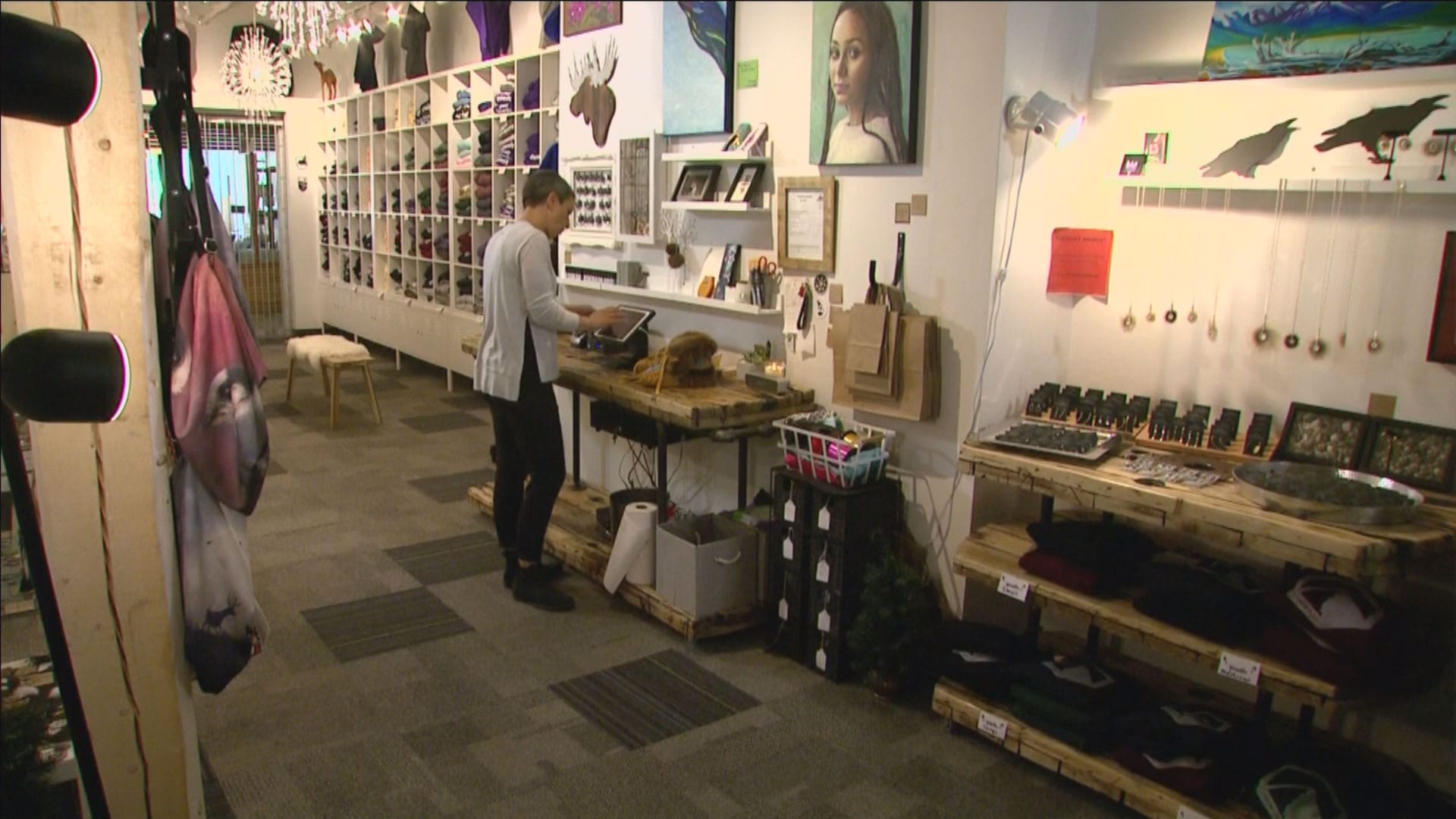At Douma Alwaird’s retail shop you can find just about anything made by Yukoners – including authentic Indigenous jewelry and accessories.
Indigenous-made items are some of Alwaird’s top selling items, making her one of the go-to northern retailers for northern Indigenous artists, jewelers and crafters.
An avid collector of Indigenous art and jewelry herself, Alwaird is no stranger to the detail and time that artists pour into every piece, and believes they should be paid accordingly.
“I always felt (their work) was underpriced,” the owner of Unorthodox told APTN News.
“I felt like the artists were doing a disservice to themselves in the amount of time, effort and the materials that go into the product.”

For example, a small beaded patch by Selkirk First Nation artist Kayln Baker, who’s based in Whitehorse, costs $900; a delicate pair of caribou earrings by Maria Rose Sikyea of Copper Dene First Nation in the Northwest Territories are $450; an elaborate pink beaded fireweed crown by Rayven Svendsen of Teslin Tlingit Council in the Yukon is a firm $700.
Alwaird says her pricing is not typical.
For many Indigenous artists, an all-too-common reality is their work is under-priced and undervalued – despite the amount of time and effort they dedicate to their craft.
As Alwaird began to work with more artists, she noticed a trend of lower-end prices for higher-end craftsmanship items – something she felt was unfair for the quality of work being sold at her store.
“I not only want to help (the artists that I work with) realize that their work is worth every penny that I price it at,” she said, “but that it’s also OK for them to ask a higher price for their work.”

Randi Nelson of Whitehorse is benefitting from Alwaird’s pricing first-hand.
Since she began selling some of her pieces to Unorthodox, the artist with Métis heritage raised her prices thanks to Alwaird’s encouragement.
“I worked with Douma in figuring out what my pricing would be, which was a learning curve for me,” she said.
“She helped me establish confidence in my pricing and what the fair market pricing for my materials and market share would be, so now I feel like my items are fairly priced.”
Selkirk artist Kayln Baker agrees.
“(Alwaird) has helped me as an artist realize that what I was charging before was underselling myself. It’s helped me bump up my prices to a place where I feel like they’re now fair,” she said.
Baker says Alwaird has also helped her bring in more business by connecting her with customers looking for custom work outside of the shop.
“She’s introduced me to a few clients and I was really grateful for that. I’m currently working on an order for a woman who came to her shop and asked about my stuff. I’m working on jewelry for her bridal party and the bride.”
While she’s not Indigenous herself, Alwaird grew up in northern Canada, where her mother managed a First Nation and Inuit gallery.
Alwaird said she grew up appreciating Indigenous northern art, and though she has no formal art education, she can appreciate the amount of work that goes into each piece.
“I seem to have a knack for just looking at something and knowing what I would pay for it, and I would like to think that I do have a good grip on it now,” she said.
Alwaird admits her items aren’t cheap – some pieces can be priced as high as $2,000 – but for her, they’re worth every penny.
“We put value on weird items, like Louis Vuitton purses and luxury items, so why should there be hesitation when paying a thousand dollars for a beaded purse when you drop a thousand dollars on a mass produced luxury item? I view it as art.”









